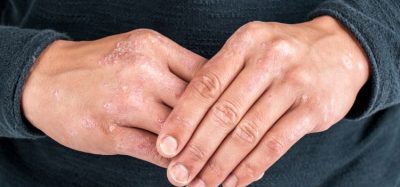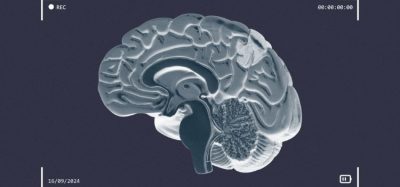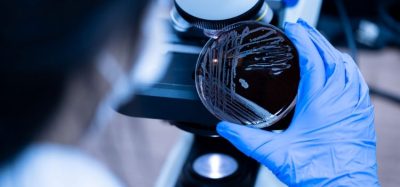COVID-19 vaccine induces immune response in Phase I trial
Posted: 26 May 2020 | Hannah Balfour (European Pharmaceutical Review) | No comments yet
The adenovirus type 5 vectored COVID-19 (Ad5-nCoV) vaccine candidate safely induced T cell and antibody responses in 108 adults.
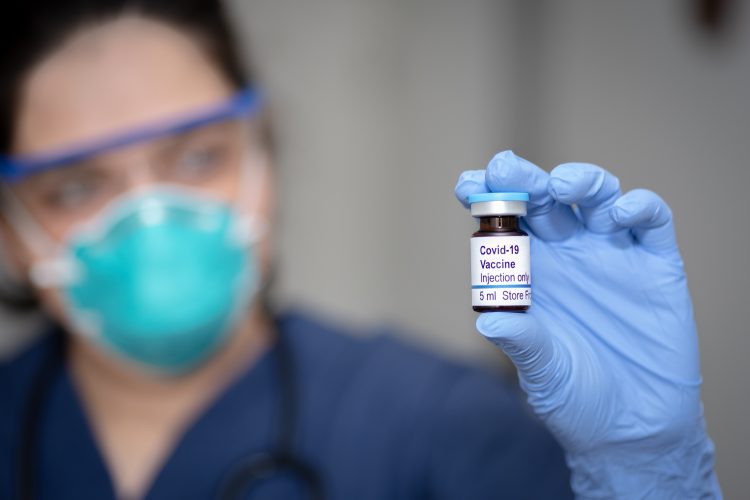

Scientists have revealed the first COVID-19 vaccine candidate, adenovirus type 5 vectored COVID-19 (Ad5-nCoV), to be tested in humans is safe, well-tolerated and able to generate an immune response.
Professor Wei Chen from the Beijing Institute of Biotechnology in Beijing, China, who is responsible for the study said: “These results represent an important milestone. The trial demonstrates that a single dose of the new adenovirus type 5 vectored COVID-19 (Ad5-nCoV) vaccine produces virus-specific antibodies and T cells in 14 days, making it a potential candidate for further investigation. However, these results should be interpreted cautiously. The challenges in the development of a COVD-19 vaccine are unprecedented, and the ability to trigger these immune responses does not necessarily indicate that the vaccine will protect humans from COVID-19. This result shows a promising vision for the development of COVID-19 vaccines, but we are still a long way from this vaccine being available to all.”
There are currently more than 100 COVID-19 vaccine candidates in development globally, Ad5-nCoV is the first to be evaluated in humans. It uses a weakened adenovirus, which infects human cells readily but is incapable of causing disease, to deliver genetic material that codes for the SARS-CoV-2 spike protein to the cells. These cells then produce the spike protein and travel to the lymph nodes where the immune system creates antibodies that will recognise that spike protein and fight off the coronavirus.
The trial assessed the safety and ability to generate an immune response of different dosages of the new Ad5-nCoV vaccine in 108 healthy adults between the ages of 18 and 60 years who did not have SARS-CoV-2 infection. Volunteers were enrolled from one site in Wuhan, China, and assigned to receive either a single intramuscular injection of the new Ad5 vaccine at a low dose (5 × 1010 viral particles/0·5ml, 36 adults), middle dose (1×1011 viral particles/1.0ml, 36 adults) or high dose (1.5 x 1011 viral particles/1.5ml, 36 adults).
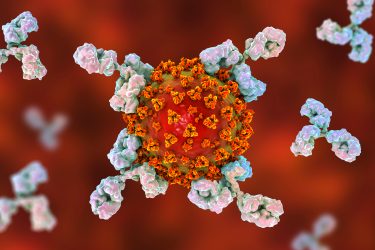

The researchers tested the volunteers’ blood at regular intervals following vaccination to see whether the vaccine stimulated both a humoral (antibody) and (T) cell-mediated response. The ideal vaccine would generate both to combat SARS-CoV-2.
The paper published in the Lancet reveals the Ad5-nCoV vaccine was well tolerated at all doses with no serious adverse events reported within 28 days of vaccination. Most adverse events were mild or moderate and included mild pain at the injection site (54 percent), fever (46 percent), fatigue (44 percent), headache (39 percent) and muscle pain (17 percent).
After 14 days, all doses of Ad5-nCoV triggered production of SARS-CoV-2 binding antibodies and some participants had detectable neutralising antibodies (28 percent of low-dose group; medium dose 31 percent; high dose 42 percent). Most participants had a four-fold increase in binding antibodies after 28 days, at which point half of the low- and medium-dose groups and 75 percent of those in the high-dose group showed neutralising antibodies against SARS-CoV-2.
Ad5-nCoV also stimulated a rapid T cell response in the majority of volunteers, with levels peaking at 14 days after vaccination (low-dose group 83.3 percent; medium 97.2 percent; high-dose group 97.2 percent at 14 days).
Further analyses showed that 28 days after vaccination, the majority of recipients showed either a positive T cell response or had detectable neutralising antibodies against SARS-CoV-2.
“Our study found that pre-existing Ad5 immunity could slow down the rapid immune responses to SARS-CoV-2 and also lower the peaking level of the responses. Moreover, high pre-existing Ad5 immunity may also have a negative impact on the persistence of the vaccine-elicited immune responses,” said Professor Feng-Cai Zhu from Jiangsu Provincial Center for Disease Control and Prevention in China who led the study.
A randomised, double-blinded, placebo-controlled phase 2 trial of the Ad5-nCoV vaccine has been initiated in 500 health adults in Wuhan. It aims to determine whether there are any adverse events up to six months after vaccination. Thee protocol states 250 volunteers will be given a middle dose, 125 given a low dose and 125 given a placebo as a control. This trial will also include participants over 60 years old, an important target population for a potential COVID-19 vaccine.
Related topics
Antibodies, Clinical Trials, Drug Safety, Proteins, Proteomics, Research & Development (R&D), Vaccines, Viruses
Related organisations
Beijing Institute of Biotechnology, Jiangsu Provincial Center for Disease Control and Prevention




